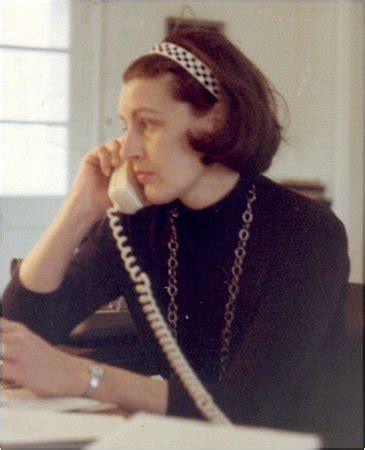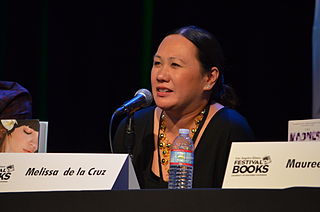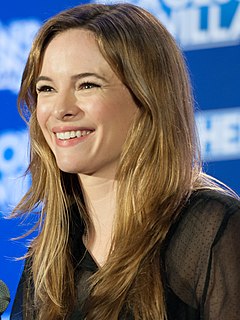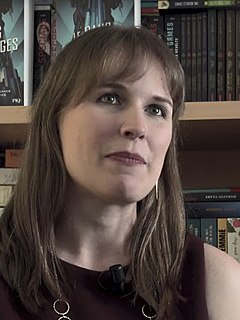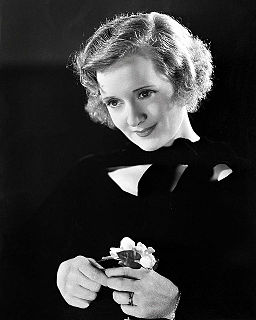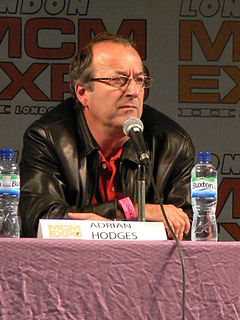A Quote by Alice S Rossi
... a supportive husband is an absolute requirement for professional women.... He is something she looks for, and when she finds him, she marries him.
Quote Topics
Related Quotes
She was in a terrible marriage and she couldn't talk to anyone. He used to hit her, and in the beginning she told him that if it ever happened again, she would leave him. He swore that it wouldn't and she believed him. But it only got worse after that, like when his dinner was cold, or when she mentioned that she'd visited with one of the neighbors who was walking by with his dog. She just chatted with him, but that night, her husband threw her into a mirror.
I'll never forget the first time Davram took me by the scruff of my neck and showed me he was the stronger of us. It was magnificent! If a woman is stronger than her husband, she comes to despise him. She has the choice of either tyrannizing him or else making herself less in order not to make him less. If the husband is strong enough, though, she can be as strong as she is, as strong as she can grow to be.
She looked at him then, but his image blurred behind tears that swelled into her eyes. She must leave. She must leave this room, because she wanted to hit him, as she had sworn she never would do. She wanted to cause him pain for taking a place in her heart that she wouldn't have given him if she'd known the truth. "You lied to me," she said. She turned and ran from the room.
Every wife ought to answer for her man. If the husband be engaged in a seditious club, or drinks mysterious healths, or be frugal of his candles on a rejoicing night, let her look to him and keep him out of harm's way; or the world will be apt to say, she has a mind to be a widow before her time. She ought, in such cases, to exert the authority of the curtain lecture; and if she finds him of a rebellious disposition, to tame him, as they do birds of prey, by dinning him in the ears all night long.
She was humbled, she was grieved; she repented, though she hardly knew of what. She became jealous of his esteem, when she could no longer hope to be benefited by it. She wanted to hear of him, when there seemed the least chance of gaining intelligence. She was convinced that she could have been happy with him, when it was no longer likely they should meet.
It was so enticing from the beginning to be this woman who was entrenched in The Flash's world. She's not there to just tell him what a great job he's doing, she's also there to push him further and help him to be the best that he can be. She's often the first person to be a little bit skeptical of him, which is kind of nice. She really challenges him.
She looked at him, and oh, the weariness to her, of the effort to understand another language, the weariness of hearing him, attending to him, making out who he was, as he stood there fair-bearded and alien, looking at her. She knew something of him, of his eyes. But she could not grasp him. She closed her eyes.
He was making her feel small and absurdly petulant and, worse yet, she suspected he was right. She always suspected he was right. For a brief irrational moment, she wished she could walk away from him. Then she wished, more rationally, that she could love him without needing him. Need gave him power without his trying; need was the choicelessness she often felt around him.
I think there's an element in Milady where she sees her own innocence in D'Artagnan. In the very beginning, she's using him in a pretty cynical way. When she gets to know him, she sees qualities in him that she recognizes and it's almost like trying to remake the past, but of course, it doesn't work.
She was beautiful, but not like those girls in the magazines. She was beautiful, for the way she thought. She was beautiful, for the sparkle in her eyes when she talked about something she loved. She was beautiful, for her ability to make other people smile, even if she was sad. No, she wasn't beautiful for something as temporary as her looks. She was beautiful, deep down to her soul. She is beautiful.
